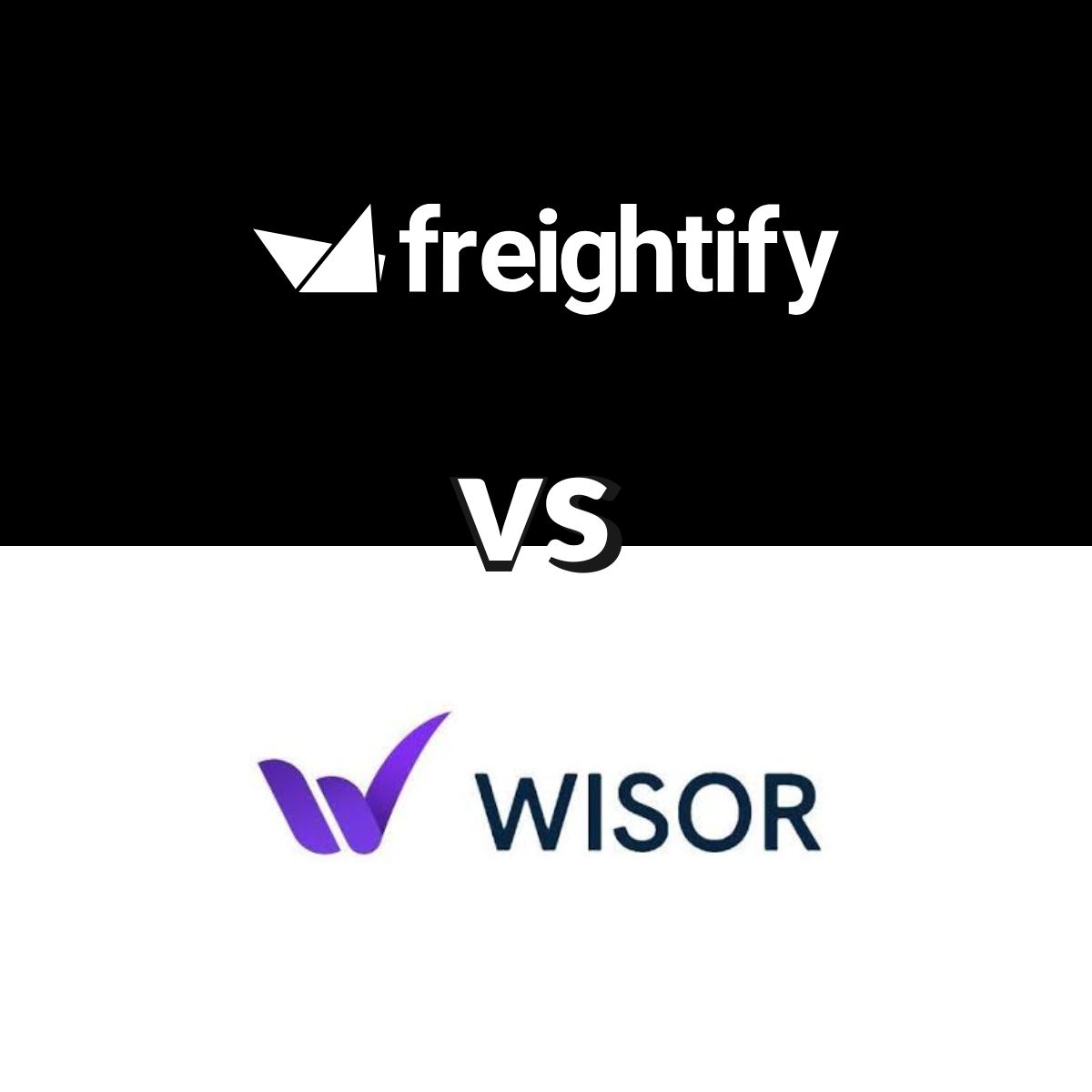The freight forwarding industry plays a crucial role in global trade, enabling the movement of goods worldwide.
As a freight forwarder, your role combines the various aspects of transporting goods, including customs clearance, transportation, and logistics.
In today's fast-paced and constantly changing business environment, it is essential to anticipate and prepare for the challenges you may face in 2024.
In this blog post, we will discuss some critical challenges that freight forwarders may face in the coming year and provide strategies for navigating and overcoming them.
Let us help you with your journey
Your one-stop solution to retrieve all live carrier rates and schedules in seconds!
1. Economic Challenges One of the main challenges that freight forwarders may face in the future is global economic uncertainty.
Economic downturns or fluctuations can affect the demand for freight forwarding services and impact the business. In times of economic uncertainty, focusing on cost management and maximizing profitability is crucial.
It involves a multi-pronged approach, like reducing costs by negotiating better rates with suppliers and optimizing routes and schedules.
Freight forwarders should also focus on identifying bottlenecks or inefficiencies in operations and implementing solutions to improve efficiency and reduce costs. For example, reduce transportation costs by consolidating shipments or using more efficient modes of transport.
There can be opportunities to minimize warehousing or storage costs by implementing just-in-time inventory systems or using technology to optimize space utilization.
Another way to manage economic challenges is to focus on customer retention and loyalty.
In times of economic uncertainty, building solid relationships with customers and offering them value for their business is essential.
How can relationships help in flourishing your business during economic downturns? By building solid relationships with your customers, companies can increase the likelihood that they will continue to do business with you in the future, even during economic uncertainty.
This may involve offering customized solutions or services that meet their specific needs or providing excellent customer service to build trust and loyalty. It is also prudent to diversify the existing customer base or expand into a new market to mitigate the impact of economic challenges.
Finally, it is essential to have contingency plans in case of economic challenges, like having a financial reserve to weather economic downturns or fluctuations or having backup plans in case of unexpected disruptions to your business operations.
By anticipating and preparing for economic challenges, freight forwarders can better position the business to navigate and overcome them.
2. Political challenges Political factors, such as trade disputes or policy changes, can also impact the freight forwarding industry.
For example, trade agreements or tariff changes can affect the flow of goods and transportation costs. Sometimes, these problems will coincide, as was the case with the China-US trade war , the Clean Shipping Act , and the responses to AB5 .
But, how to timely navigate about the political disruptions? To navigate these challenges, staying up-to-date with political developments and their potential impacts on your business is crucial.
This may involve building relationships with key decision-makers or seeking advice from industry experts or trade organizations.
It is also a good idea to have contingency plans in case of disruptions to your business operations.
One way to stay informed about political developments is to review trade news and policy updates from relevant sources regularly.
This can help you stay informed about changes that may affect your business, such as new tariffs or trade agreements.
It is also a good idea to join industry associations or trade organizations that can provide you with access to valuable resources and insights into political developments.
Another way to navigate political challenges, as discussed earlier, is to diversify your business. It gives a cushion against political surprises along with economic ones.
By expanding your operations into different markets or regions, you can reduce your reliance on any particular market and mitigate the impact of political challenges.
This may involve developing new partnerships or relationships with new customers in different countries or regions.
By diversifying your business, you can increase your resilience to political challenges and maintain a reliable and stable company.
Well, how to address these political uncertainties? Finally, it is essential to be proactive and proactive in addressing political challenges.
Taking an active and aggressive approach can better position your business to navigate and overcome political challenges.
This may involve engaging with policy-makers or industry organizations to advocate for policies that support your business or working with your customers to help them navigate changing political landscapes.
3. Technological challenges Technology is increasingly important in the freight forwarding industry, with new tools and systems constantly emerging.
But, how can technology be a challenge? While these technologies can provide many benefits, they also present challenges for freight forwarders who need to keep up with the latest innovations.
It is vital to stay up-to-date with the newest technology, understand how to improve your operations, and remain competitive.
This may involve investing in new software or systems or training your staff to use new tools.
It is also essential to keep an eye on emerging technologies and be prepared to adapt as needed.
Let us help you with your journey
Procure, Manage and Quote freight prices (with ancillary charges) in under 2 minutes!
How can logistics service providers keep up with the tech trends? One way to stay up-to-date with technology is to regularly review industry news and updates from software vendors and technology providers.
This can help you stay informed about new tools and systems relevant to your business and any updates or improvements to existing technologies.
It is also a good idea to attend industry conferences and events, which can provide valuable insights into the latest trends and developments in the field.
Another way to stay competitive in the face of technological challenges is to invest in your team.
By providing ongoing training and support to your employees, you can ensure they have the skills and knowledge needed to use new technologies effectively.
This may involve providing in-house training or sending employees to industry conferences or workshops.
Investing in your team ensures they have the skills and knowledge to effectively use new technologies and adapt to new tools and systems.
Finally, it is important to be proactive in adopting new technologies .
This may involve seeking out new technologies that can improve your operations, such as software solutions that streamline your processes or tools that provide greater transparency and traceability.
The team should also be engaged to use the latest systems and encouraged to keep sharing their thoughts on the shortcomings of the existing systems.
By adopting new technologies, you can stay ahead of the competition and position your business for success in the face of technological challenges. 4. Environmental challenges Environmental challenges have become increasingly important for freight forwarders to address in recent years, and this trend will continue in 2024 and beyond.
One major challenge is the need to reduce greenhouse gas emissions from transportation.
The shipping industry is a significant contributor to global carbon emissions, and freight forwarders play a crucial role in finding ways to reduce these emissions.
This could involve using more fuel-efficient modes of transport, such as rail or waterways, or choosing carriers that have made commitments to sustainability.
Another challenge is managing the environmental impact of logistics operations.
This includes reducing waste, promoting reusable or recycled packaging materials, and minimizing the use of single-use plastics.
It also involves reducing the carbon footprint of warehousing and distribution activities, such as implementing energy-efficient systems and practices.
Freight forwarders will also need to adapt to new regulations and standards related to environmental sustainability , such as complying with laws and regulations on emissions and waste management and meeting the expectations of customers and partners who are increasingly interested in sustainability.
Overall, addressing environmental challenges will require a concerted effort from freight forwarders to rethink their operations and find more sustainable solutions. This could involve investing in new technologies, partnering with eco-friendly carriers and suppliers, and working with industry organizations and governments to drive change.
By proactively addressing these challenges, freight forwarders can help protect the environment and differentiate themselves in a competitive marketplace.
5. Competition challenges Competition is a constant challenge for freight forwarders and will intensify in 2024.
New-age companies with digital platforms and e-commerce operations are disrupting traditional supply chain models.
These companies often capitalize on large amounts of data and advanced technology, which they use to optimize their logistics operations and offer competitive pricing.
How can smaller freight forwarders cope up with the competiton? Smaller freight forwarders will need to find ways to compete with these new entrants, which could involve investing in their digital capabilities and using data analytics to improve their operations.
This could include strategic collaboration with other companies in implementing new technologies, such as automation and artificial intelligence, to build a data warehouse, streamline processes and reduce costs.
Freight forwarders will also face competition from traditional rivals of low-cost markets where companies may be able to offer competitive prices due to lower labor and other costs.
To overcome this challenge, freight forwarders must continuously evaluate their service offerings and find ways to differentiate themselves. Overall, the competitive landscape for freight forwarders is expected to remain challenging in 2024, and companies must stay agile and adaptable to succeed.
This could involve finding new niche markets, collaborating with partners and suppliers, and continually improving their operations and service offerings.
Conclusion In conclusion, the freight forwarding industry faces challenges from multiple directions that require businesses to be proactive and adaptable to succeed.
In 2024, freight forwarders may have to withstand economic uncertainty, political instability, and challenges from technological disruption.
To navigate these challenges, freight forwarders must focus on cost management, customer retention, differentiation, and innovation. This may involve investing in new technologies like freight forwarding software , RMS etc, building strong relationships with customers and partners, and staying up-to-date with industry developments.
By anticipating and preparing for these challenges, freight forwarders can position themselves for success in an increasingly complex and competitive marketplace.




















